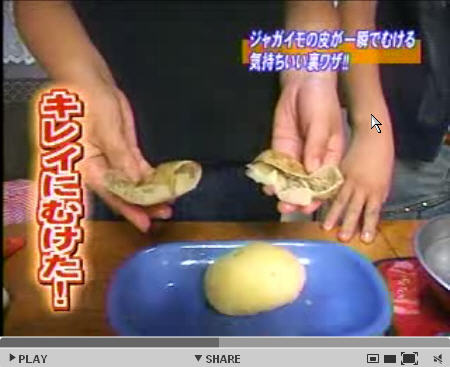Juice fasting is an advanced detox method thought to speed the elimination of toxins from the body.
Fasting refers to the avoidance of solid foods and the intake of liquids only. Water fasts are one type of fast, but juice fasting is often used because juice requires minimal digestion, improves energy, is easily absorbed and assimilated by the body, and supplies nutrients and calories to maintain energy while clearing body waste. Juice fasting may also help decrease the unpleasant detox-withdrawal reaction that can occur.
Benefits of Juice FastingMany people experience enhanced physical, mental, and spiritual well-being during and after juice fasting.
People who report the greatest benefits from juice fasting are those who have:
congestion (e.g chronic sinus congestion)
constipation
headaches
white or yellow tongue coating -- tongue coating can be a sign of congestion and toxicity
bad breath
acne or other skin eruptions
bloating, gas, flatulence
postnasal drip
premenstrual syndrome
runny nose
excess meat and fat consumption, overeating
chronic bronchitis
muscle stiffness in the low back
Juice Fasting GuidelinesTiming – Juice fasting should only be done during the warmer months. In Canada and northern regions of the United States, this means spring, summer, and early fall. Spring is thought to be the best time of the year for juice fasting.
Some people prefer to wait until a vacation from work to perform a juice fast. Most people should not perform more than two fasts per year, because it can cause depletion and weakness. After a fast, be sure to spend the next months strengthening and rebuilding your system. Restorative or anusara yoga, probiotics (friendly bacteria) supplements, and stress reduction are some strategies that can help.
Level – People who are fasting for the first time, have the above symptoms, or who are not healthy should be supervised by an experienced health care professional. The following methods can be used to minimize risks and slowly detoxify the body:
Five to seven days before the fast, eliminate alcohol, nicotine, caffeine, sugar, dairy, wheat, animal meat, fish, eggs. The diet should consist mainly of organic fruits, vegetables, and beans.
Limit the fast to three days or less. One method is to abstain from food for 38 hours, from 6 pm one night to 8 am two days later. Most people will feel slightly hungry and may experience some symptoms such as irritability or headache by the end of the second day.
Optional: Eat fresh organic fruit or vegetables during the juice fast.
Optional: Eat one meal daily at around 2 or 3 pm.
Optional: Eat light meals based on protein, vegetables, and starches. It is no longer a fast at this point, but a detox diet.
Proper supervision is necessary when fasting is used by people with medical conditions or who are taking prescription drugs.
Juicing guidelines The basic procedure is to use between one and three parts distilled or filtered water to one part fresh juice. Between 32 and 64 oz. of juice is usually recommended per day. The juice is sipped throughout the day. Good choices for detox are celery, carrot, kale, cabbage, apple, pineapple, cranberry, spinach, beet, and greens. Citrus fruits should be avoided. Approximately 6 glasses of filtered water should be consumed (including the water used to dilute the juice) to flush out toxic substances.
Use organic fruits and vegetables. If you cannot find organic produce, peel the skin off fruits and vegetables or wash vegetables with a non-toxic produce cleaner, usually available at health food stores.
Low-allergen protein supplements, such as Ultra Clear and Medi Pro Protein Powder, can be added after the third day. They provide protein, vitamins, and minerals to support the detoxification process. The powder can be mixed into juices.
It is preferable to drink freshly juiced fruits and vegetables, but if unavailable, buy it from the health food store or juice bar as fresh as possible.
You may add blue-green algae, spirulina, or chlorella to juices to provide more energy.
Other suggestions
Be sure to drink plenty of warm water in addition to juices.
Go to bed early. In traditional Chinese medicine, 11 pm to 1 am is when the liver, the major detox organ, is most active.
Keep warm.
Nurturing and relaxing are important during this time. Breathing exercises, yoga and/or meditation are some optional suggestions.
Get lots of rest.
Juice Fasting DurationA fast usually lasts for one to five days. Longer fasts should only be done with medical supervision.
Pay attention to weight, symptoms and degree of congestion, tongue coating, degree of hunger, and energy level. If energy level drops for more than one day, if weight becomes too low, or if any symptoms become particularly intense, it is time to break the fast. Tongue coating may become thicker or have a more pronounced color (yellow, white, grey) as the body eliminates toxins. Although tongue coating should be used as a general indicator only. Some people retain a coated tongue even after all other symptoms have improved.
Benefits of juice fastingIn addition to promoting the excretion of toxins and decreasing congestive symptoms, juice fasting is believed to have the following benefits:
Eliminates most food allergies and sensitivities.
Reduces the burden on the digestive system, allowing it to heal.
Releases pesticides, drugs, and other chemicals from stored fat, which can then be eliminated.
Enhances mental, physical, and spiritual well-being
Has less severe withdrawal symptoms than a water fast.
Increased energy
Mental clarity
Glowing skin
Prevents chronic diseases caused by poor diet and lifestyle
Clears mucus dishcharge
Side effects and healing crises
In the first three days, it is not uncommon for headache and hunger to occur. These side effects are usually gone by the third or fourth day. Many people notice a thickening in the tongue coating, which can be brushed off with a toothbrush. Other common experiences – known as healing crises -- are bad breath, unpleasant taste in the mouth, foul-smelling stools, digestive upset, acne, energy fluctuations, mucus in the stools, sinus congestion, skin eruptions, fever, irritability, yawning, muscle aches or tightness, and gas. Most healing crises pass within one or two days.
Healing crises often occur during a detox or other positive change in lifestyle. In addition to physical symptoms associated with the release of toxins, emotions can also be released during a healing crises. Old symptoms from the past can also appear during fasts. They usually last for a brief period.
If any symptoms last more than two to three days, it should be considered a problem and be addressed. If a problem worsens or causes concerns, or if fainting, bleeding, dizziness, low blood pressure, vomiting and diarrhea, palpitations, kidney problems, or arrhythmias occur, the fast should be stopped immediately and a doctor consulted. In general, people should consult a health professional skilled in detoxification before trying a juice fast.
Who should not try juice fasting?Consult your primary care provider before trying juice fasting. People with the following conditions should not try juice fasting: diabetes, hypoglycemia, eating disorders, anemia, epilepsy, kidney disease, impaired or weak immune system, cardiac arrhythmias, weak heart, candida, cancer, peptic ulcer, malnutrition, pregnancy, nursing, gout, lactation, asthma, terminal illness, tuberculosis, ulcerative colitis, any condition that causes depletion and weakness, underweight, chronic infection, nutritional deficiency, low blood pressure, epilepsy. People should not try juice fasts before or after surgical procedures. Fasting can reduce blood proteins and change the way prescription drugs react in the body. People taking prescription medication should consult a health professional skilled in detoxification before trying a juice fast.
People with blood sugar disorders should only try a juice fast under the supervision of a health care provider. Juices that are higher in sugar, such as carrot, pineapple, grape, orange, apple, and beet, should be avoided.



